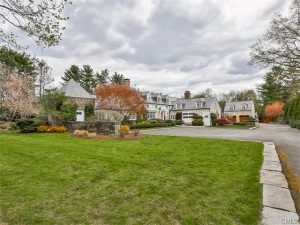 When looking for a new home in Greenwich, New Canaan, Danbury, Westport, Fairfield or other towns in Fairfield County, there’s a good chance you’ll come across a few elegant historic homes.
When looking for a new home in Greenwich, New Canaan, Danbury, Westport, Fairfield or other towns in Fairfield County, there’s a good chance you’ll come across a few elegant historic homes.
While vintage homes do have a certain charm and appeal not found in newer properties, you need to be aware that there are restrictions and expenses attached to them, not to mention possible unexpected complications such as structural problems.
Here’s some important information about historic homes that can help you out, in case you’re thinking of buying one:
How do you know if a home’s actually considered “historic”?
The National Register of Historic Places or the local historic board decides if a home is considered historic or architecturally significant. Historic homes are associated with significant people from the past, exemplify signature architectural styles, or are located within historic districts.
What are some benefits of buying a historic home?
Just the sheer visual splendor of a well-built historic home with a unique and elegant architectural style is enough to convince anyone to own a historic property.
But there are added benefits as well – some states and local governments offer tax incentives for restoring and preserving historic properties.
What helpful advice can you give me before I proceed with buying a historic home?
- A formal home inspection is of the utmost importance. Look for a home inspector and a structural engineer who has lots of experience working with vintage homes.
- Find out if the house meets all safety and health standards.
- Make sure you get price estimates regarding necessary repairs from inspectors.
- Completely avoid homes with severe structural problems, no matter how beautiful they may be. Trust us – you’ll be saving yourself from potential headaches and hefty expenses down the line.
- Spend time researching on state or local laws regarding historic structures, especially if you plan on remodeling or expanding your home.




